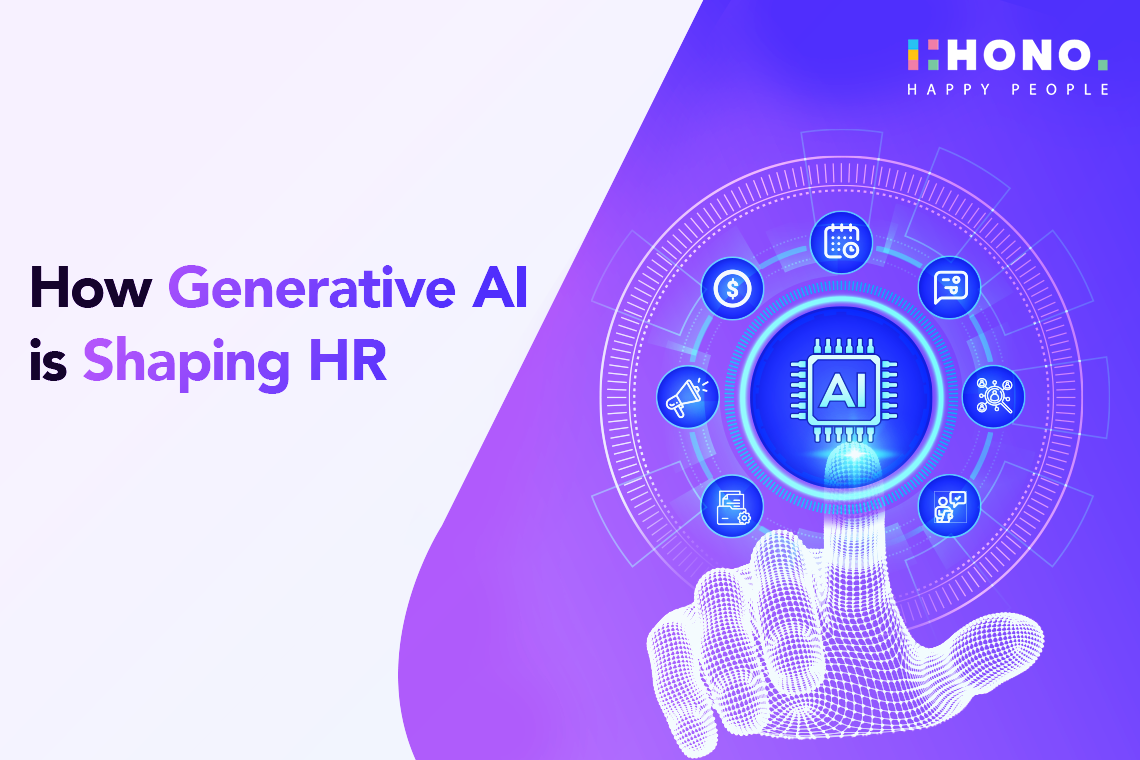Understanding Employee Engagement HR Policies
Employee engagement nowadays is more than a buzzword; it's a strategic imperative encompassing factors like job satisfaction, motivation and a sense of purpose. Engaged employees are proven contributors to heightened productivity and increased retention rates, making it imperative for HR professionals to comprehend and cultivate engagement within their organizations.

Crafting Effective Employee Engagement Policy and Procedure
Crafting effective employee engagement policies requires a nuanced understanding of organizational culture. One size does not fit all, necessitating tailored approaches leveraging next-gen innovations that align with the unique dynamics of each workplace. HONO is aligned with the significance of employee engagement in building the future of a thriving workplace. To accelerate employee engagement with future-forward policies, our Policy GPT is your one-stop-solution to craft effective policies effortlessly and master the intricacies of keeping top talent engaged at work. Here’s an overview of what the Policy GPT takes care of:
Capability to utilize multiple sources (pdf files/FAQ url) for policy search on chatbots
Role specific or brand specific replies on policy documents for precise answers
Proactive prompts on chatbots for a change in policies
Also read: Generative AI-Powered Employee Engagement: Strategies and Benefits for Enterprises
Challenges in Implementing Employee Engagement HR Policies
Introducing new and upgraded employee engagement policies and procedures can face several challenges and complexities, including:
Resistance to Change: Employees and even leadership may resist new policies or procedures, especially if they disrupt established routines. Overcoming resistance requires effective communication, clear benefits, and a gradual transition.
Customization for Diverse Workforces: Crafting policies that resonate with diverse employee backgrounds, preferences, and expectations can be challenging. HR needs to create inclusive policies that address the unique needs of a varied workforce.
Measuring Engagement Effectively: Quantifying the impact of engagement initiatives and policies can be complex. Establishing meaningful key performance indicators (KPIs) and analyzing data accurately are essential for measuring engagement and making informed adjustments.
Navigating these challenges requires a strategic and flexible HR approach that considers the unique dynamics of the organization and its workforce.
Key Elements to Consider in Policy Formulation
To facilitate effective employee engagement HR policies, HONO recognizes robust communication channels, meaningful recognition programs, avenues for professional growth and a healthy work-life balance initiatives as imperative in combination with a thorough understanding of the company. Our Policy GPT transcends traditional employee engagement methods with innovative strategies to enhance the connection teams feel towards their current employer. Implementing chatbot interactions for intuitive responses anytime anywhere adds to the employee experience. HONO effectively addresses queries on multiple HR aspects, such as leave encashment policies, creating KPIs, investment declaration support, job descriptions for full stack and probation period among others.
Consider the following key elements to create the most effective employee engagement policies:
Tailored to Organizational Culture: Employee engagement policies should align with the specific culture and values of the organization, tailored to resonate with unique dynamics, goals, growth structure and ethos of the workplace.
Comprehensive Communication Strategies: Policies should include clear and transparent communication channels that facilitate a free flow of information between employees and management with regular updates and feedback.
Holistic Approach to Well-being: Consider a holistic approach to employee well-being, encompassing physical, mental, and emotional aspects with recognition programs, growth opportunities, work-life balance initiatives, and wellness programs.
Employee Feedback Mechanisms: Regular, constructive feedback facilitates continuous improvement within the organization, utilizing surveys, one-on-one discussions and structured performance reviews. The goal is to address issues promptly and support transparency in a positive work environment.
HONO Pulse makes gathering valuable insights into employee concerns and aspirations easy and convenient by leveraging real-time data analysis to make informed decisions.

Measuring Employee Engagement: Utilizing key performance indicators (KPIs) for quantifying and measuring employee engagement, including metrics related to employee satisfaction, retention rates, productivity levels, and participation in company initiatives to identify areas of improvement using actionable insights.
Understanding 5’s, 4 E’s, and 3 P’s of Employee Engagement: The 5 Cs (Care, Connect, Coach, Contribute, and Congratulate), 4 E’s (enablement, energy, empowerment, and encouragement) and 3 P’s (People, Purpose and Process) models of employee engagement facilitate motivated productivity and employee satisfaction.
Also Read: Impact of Employee Engagement on Organizational Success
Benefits of Modern Employee Engagement Policies and Procedures
Today’s rapidly evolving workforce dynamics require adapting personalized policies to meet unique employee standards to foster a culture of trust, openness and collaboration that promotes growth and inclusivity. Here are the benefits of crafting modern enagagement policies:
Boosted Productivity: Effective engagement policies lead to a more motivated and committed workforce. Engaged employees are generally more productive, contributing positively to the overall output of the organization.
Enhanced Employee Satisfaction: Tailored engagement policies address the diverse needs and expectations of employees. This leads to increased satisfaction, creating a positive workplace culture that fosters loyalty and reduces turnover.
Upskilled Workforce: Personalized training and development initiatives play a pivotal role in boosting employee engagement by aligning individual career aspirations with tailored learning opportunities. This approach not only enhances skills but also reinforces a sense of value and investment in employees, fostering a more engaged and motivated workforce.
Improved Retention Rates: By focusing on elements like career development, recognition, and work-life balance, engagement policies contribute to higher employee retention rates. Reduced turnover not only saves costs but also ensures continuity and stability within the organization.
Greater Sense of Recognition and Inclusivity: Recognition and rewards are integral to employee engagement, emphasizing the significance of appreciating and celebrating contributions. Effective programs, such as employee of the month or peer recognition, not only boost morale but also create a positive workplace culture that values and acknowledges the efforts of individuals, promoting sustained engagement.
Cultivation of a Positive Work Environment: Well-crafted engagement policies contribute to the creation of a positive and inclusive work environment. This, in turn, fosters collaboration, effective communication, and a sense of belonging among employees.
Greater Employee Innovation and Creativity: Engaged employees are more likely to contribute innovative ideas and creative solutions. Policies that encourage and recognize such contributions stimulate a culture of continuous improvement and innovation.
Positive Employer Branding: Organizations with robust employee engagement practices are viewed favorably by both current and potential employees. Positive employer branding attracts top talent, giving the company a competitive edge in the talent market.
Also read: Enhancing Employee Engagement through LMS Features | HONO
Role of HR in Employee Engagement Policy Creation
HONO is committed to making the lives of HR leaders easy and future-ready with next-gen HR strategies aligned with evolving employee preferences to foster heightened engagement and retention at work. Here’s how HR can support employee engagement with successful engagement policies:
Communication and Transparency: HR should foster open communication using innovative chat channels. HONO HR chatbot is your constant companion here, giving tailored answers to your unique HR-related queries 24/7, on-the-go. It ensures that employees are well-informed about organizational goals, changes, and the reasons behind new policies.
Training and Development Opportunities: Offering continuous learning and development opportunities demonstrates a commitment to employees' professional growth by utilizing data-driven insights to create tailored aspirational and developmental programs to enhance skillsets.
Recognition and Rewards Programs: Implementing effective recognition and rewards programs is a key responsibility of HR. Acknowledging employee contributions, whether big or small, boosts morale and engagement. HR can create personalized recognition initiatives tailored to the organization's culture.
Effective employee engagement policies are the cornerstone of a thriving work culture. HONO’s advanced HR tech solutions empower HR leaders in crafting, implementing, and sustaining these policies, fostering an environment of continuous improvement and adaptability where employees are motivated, valued, and contribute to the organization's success.
Schedule a Demo



.png?width=70&height=70&name=Team%20HONO%20logo-01%20(1).png)








.jpg)
